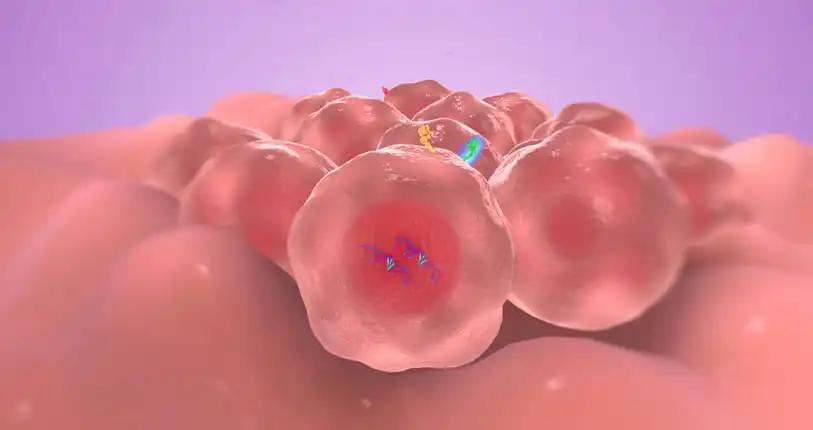KEY TAKEAWAYS
- The DecipHER phase I trial aimed to assess the feasibility and efficacy of intratumoral dendritic cell injections for treating early-stage TNBC and HR low-positive breast cancer.
- Secondary endpoints include the absolute risk of AEs, clinical and pathological responses, and RFS.
- This study will collect patients’ tumor tissue, blood, and stool samples.
Breast cancer(BC) patients(pts) who are low in hormone receptors(HR) and HER2 have a poor prognosis. A new treatment that activates the immune system has been shown to improve outcomes for these pts. Dendritic cells, a type of immune cell, are important for this treatment.
Researchers aimed to assess the feasibility and efficacy of intratumoral dendritic cell injections for treating early-stage triple-negative breast cancer(TNBC) and HR low-positive BC.
The study included 30 pts with stage cT1cN1/2 or cT2-4cN0-2, HR 20, and HER2-negative breast cancer. Exclusion criteria include inflammatory breast cancer and uncontrolled immune-mediated diseases. Autologous DCs, collected via aphaeresis, will be primed ex vivo with 6 HER2 and 8 HER3 immunogenic peptides. Pts will receive alternating intratumoral HER2 and HER3 DC injections, guided by ultrasound, twice a week for 8 doses, starting 2 weeks before neoadjuvant therapy with the KEYNOTE 522 regimen.
The study’s dose-escalation phase consists of 3 planned cohorts (10-20, 30-50, 80-100 million DCs) using a 3+3 design with a maximum of 18 participants. An additional 12 pts will be enrolled in the dose-expansion cohort and treated at the maximum tolerated dose (MTD). MTD is defined as the highest dose level at which < 2 of 6 pts experience dose-limiting toxicities (grade ≥ 3 non-hematologic, grade ≥ 3 hematologic toxicity possibly related to DCs, any grade 4 nausea, vomiting, or diarrhea [or grade 3 if duration > 3 days]) during the 5 weeks following DC treatment initiation. Secondary endpoints include the absolute risk of adverse events(AEs), clinical and pathological responses, and recurrence-free survival(RFS). Tumor tissue, blood, and stool samples will be collected for correlative analyses. The study is currently underway.
Source: https://ascopubs.org/doi/abs/10.1200/JCO.2023.41.16_suppl.TPS629?af=R
Clinical Trial: https://www.clinicaltrials.gov/study/NCT05504707
Ricardo L Costa, Jennifer A Childress, Edith Abraham, Carly Farrell, Qianxing Mo, Zena Jameel, Aixa Elena Soyano Muller, Kimberley T Lee, Susan Hoover, John Kiluk, Robert J Weinfurtner, Marie Catherine Lee, Christine Laronga, Nazanin Khakpour, Hyo S. Han, Hung T. Khong, Hatem Hussein Soliman, and Brian J. Czerniecki. DOI: 10.1200/JCO.2023.41.16_suppl.TPS629 Journal of Clinical Oncology 41, no. 16_suppl (June 01, 2023) TPS629-TPS629.



